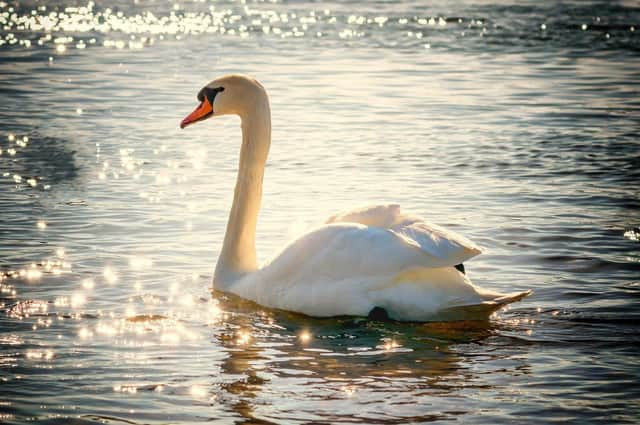Warning to the public after bird flu found in Hickling swan


The warning follows a 3km and 10km Temporary Control Zone being put in place in Charnwood District, affecting many villages west of Melton, after a case was found in a poultry farm at Barrow upon Soar.
These are among a number of confirmed cases of avian influenza across Great Britain in recent weeks and from today (Monday) onwards it will be a legal requirement for all bird keepers to keep their birds indoors and to follow strict biosecurity measures in order to limit the spread of the disease.
Advertisement
Hide AdAdvertisement
Hide AdAll poultry and captive bird keepers must also continue taking extra precautions to keep their flocks safe, including regularly cleaning and disinfecting equipment.
Wild birds migrating to the UK from mainland Europe during the winter months can carry the disease and this can lead to cases in poultry and other captive birds.
Following the Hickling case coming to light, Councillor John Cottee, chair of Nottinghamshire County Council’s communities committee, said: “The news that a swan has tested positive for avian flu will obviously be of concern to residents, however the risk of the disease transferring from birds to humans is considered to be very low.
“That said, it is important that people do not touch any sick or dead birds and I would also urge people not to feed any swans, particularly in the Hickling area, as feeding encourages them to congregate and that increases the risk of the disease spreading.
Advertisement
Hide AdAdvertisement
Hide Ad“As well as issuing an appeal for the public not to touch or move dead birds, I am also asking dog owners to keep their pets away from them.”
Rushcliffe Borough Council’s cabinet portfolio holder for environment and safety, Councillor Rob Inglis, said: “Whilst the risk is considered to be very low it’s important everyone including pet owners take these steps to ensure they or their pets do not touch or go near sick or dying birds.”
Posters are being put up across the area asking the public not to feed ducks or swans and reminding residents to keep to footpaths and to keep dogs on leads.
Anyone who finds dead wild waterfowl (swans, geese or ducks) or other dead wild birds, such as gulls or birds of prey should report them to the DEFRA helpline (03459 335577).